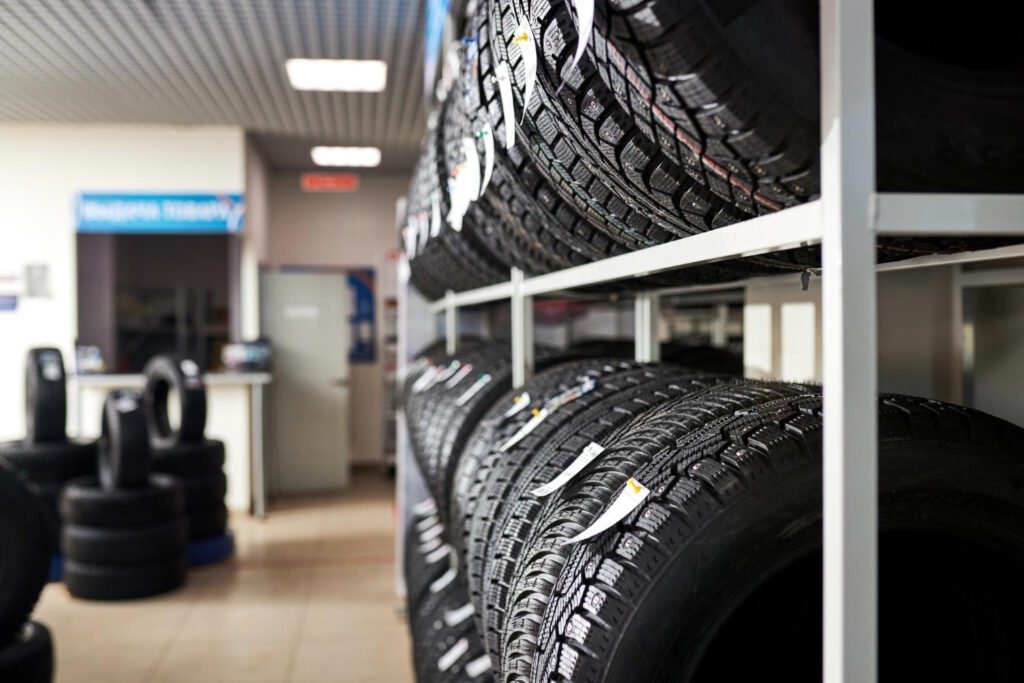The tire and auto repair industry is evolving faster than ever. Customer expectations are shifting, and digital demands are growing. Shops can no longer rely on old ways of doing business.
In 2026, being competitive isn’t just about offering quality service. It’s about running a smarter, more efficient operation. So, what exactly makes a tire shop smart in today’s landscape? And how can you stay ahead of competitors who are already adapting? Let’s break it down.
Why Competitiveness Looks Different in 2026
The challenges faced by tire shop owners have shifted significantly in recent years. While quality work and honest pricing remain essential, they’re no longer enough to stand out.
Today’s customers want faster service, digital convenience, and a seamless experience from booking to checkout. Meanwhile, shop owners are facing rising operational costs, labor shortages, and fierce competition.
This new landscape demands a different approach. Leading shops combine traditional service with smarter operations, using tire shop software to stay efficient and competitive.
6 Ways Smart Tire Shops Are Staying Ahead in 2026
The most successful shop owners are rethinking how they operate. Here’s how smart tire shops are setting themselves apart in 2026.
1. Digital scheduling and customer convenience
Today’s consumers expect convenience. Whether they’re ordering food, booking a haircut, or scheduling a tire replacement, people prefer doing it online. If your shop still handles appointments over the phone or through walk-ins, you may already be falling behind.
Smart tire shops are now adopting tire repair scheduling software to:
- Simplify booking
- Reduce no-shows
- Give customers more control over their time
These tools also allow shops to better manage technician availability, prioritize urgent jobs, and improve overall workflow.
Customers also expect transparency and instant confirmation. They don’t want to call in and wait to hear back. Online scheduling tools can:
- Offer real-time availability
- Reduce booking friction
- Help shops stay fully booked during peak times
Some platforms even integrate with text reminders and confirmations. It helps reduce no-shows and last-minute cancellations. More importantly, it builds trust. When customers can self-serve and see that your business is organized and responsive, they’re more likely to return.
2. Smarter inventory management
Maintaining tire inventory has always been a challenge. Too much stock ties up capital. Too little stock leads to missed opportunities. Smart shops in 2026 are using software to:
- Track usage trends
- Automate stock alerts
- Forecast seasonal demand
Shops now handle more tire types and vehicle models, especially with EVs and hybrids on the rise. This makes inventory planning even more complex.
Smart inventory tools can track SKU movement over time and generate reports that help owners:
- Order smarter
- Reduce waste
- Ensure the right products are always available when needed
It’s not just about tires, filters, fluids, and other fast-moving parts; all benefit from tighter inventory control. Better inventory management directly improves job turnaround times and customer satisfaction. Also, this level of insight helps owners avoid costly overstocking or delays in service due to missing parts. It frees up time for technicians and managers to focus on customer service.
3. Data-driven decision making
Smart tire shops are using reporting dashboards and analytics to make informed decisions. Access to real-time shop data allows owners to compare performance week over week or seasonally. It helps identify slow periods or uncover patterns in repeat services.
Instead of guessing, shop owners can test promotions, track technician efficiency, and see which marketing works best. The result?
- Less waste
- Better margins
- More targeted growth strategies
Knowing which services earn the most or which technicians perform best helps owners allocate resources wisely. These insights allow tire shops to try new pricing strategies or identify areas where they’re losing money.
4. Customer communication and retention
Most customers don’t think about tires until there’s a problem. That’s why smart tire shops focus on proactive communication and reminders for:
- Tire rotations
- Oil changes
- Seasonal tire swaps
Simple SMS or email reminders can drastically improve customer retention and loyalty. Personalization also plays a big role. Smart shops use CRM features to tailor messages to each customer. For example, they might remind a truck driver when it’s time for a tire rotation specific to their vehicle type.
These small touches go a long way in making customers feel cared for. It can turn a transactional relationship into a long-term one. Plus, retention is more cost-effective than acquisition. It’s far cheaper to bring an existing customer back than to win over a new one.
5. Online presence and reputation management
It’s not enough to do great work. People have to know you do great work. In 2026, your shop’s online reputation matters just as much as word-of-mouth.
Smart tire shops are actively managing their:
- Google reviews
- Updated websites
- Engagement with customers on social platforms
Responding to reviews, both positive and negative, helps build trust with potential clients. Showcasing before-and-after jobs and making online contact easy also strengthens that trust.
In addition to reviews and social content, local SEO has become essential. Smart shops are:
- Optimizing their Google Business profiles
- Using relevant keywords on their websites
- Ensuring contact info is consistent across platforms
Why? Because when someone searches “tire shop near me,” you want to be the first name they see with 5-star reviews and a simple way to book. So, being visible online is just as important as being reliable in the shop.
6. Automation and integration
From digital payments to integrated accounting, smart tire shops aim to reduce manual tasks wherever possible. When systems like scheduling, invoicing, parts ordering, and marketing work together, shop owners save time on admin tasks. This lets them focus more on growing their business.
Many tire shop owners are still managing multiple tools that don’t talk to each other. They use separate systems for POS, accounting, scheduling, and marketing. This leads to:
- Double data entry
- Errors
- Wasted time
By switching to systems that integrate everything in one place, shop owners can reduce operational complexity. This also makes it easier to scale their business with less friction.
Adapt Now, Compete Better Tomorrow
The most competitive tire shops in 2026 aren’t just fixing cars. They’re adapting, simplifying, and modernizing how they work.
Whether it’s smarter scheduling, better use of data, or stronger customer communication, one thing is clear. The future belongs to shops that embrace technology and change. Want to learn more about how to future-proof your tire shop? Discover how leading shops are staying competitive with modern tools like Torque360.



